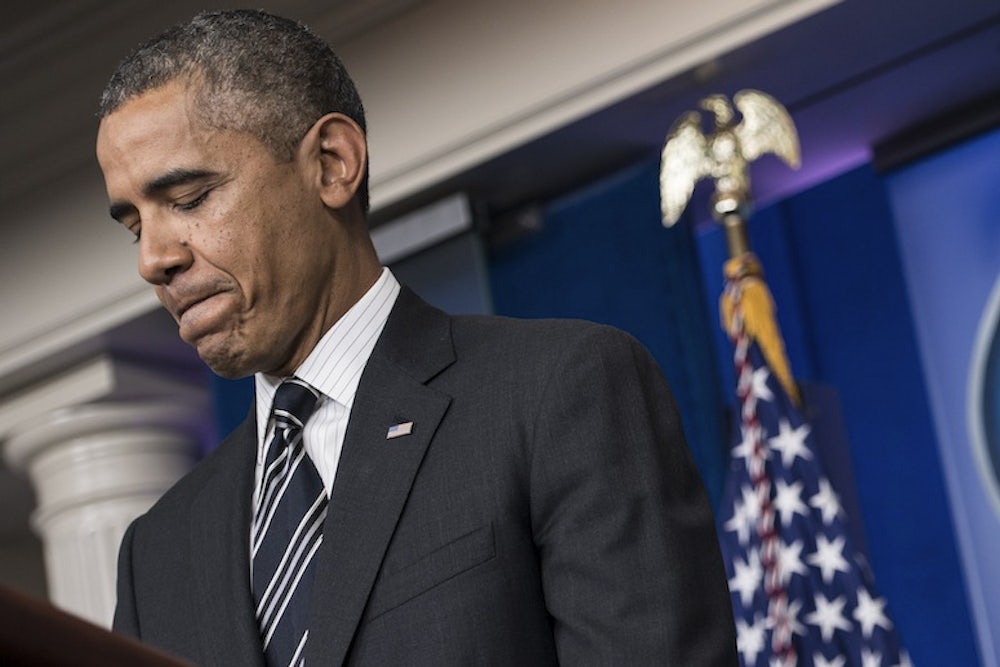Is there a way out of the mess in Washington? It doesn’t seem that way. The Washington fandango over a government shutdown and breach of the debt ceiling is careening from farce toward tragedy. If House Speaker John Boehner follows through on his willingness to alter the Senate’s clean Continuing Resolution to keep the government funded, it will at best delay resolution of the issue beyond October 1, leading to a brief shutdown, but could result in a longer impasse. For those who remember the disruptions caused by the 21-day shutdown in 1995-96, this one would be much worse—back then, more than half of the dozen appropriations bills that fund the "discretionary" portion of the federal government had been enacted, while today the number is … zero.
Disruptive as a shutdown would be for tens of millions of Americans, it would be a flesh wound for the economy. But breaching the debt ceiling would be more like slicing the country’s carotid artery.
Nevertheless, a default caused by a breach in the debt ceiling is a serious possibility, even more than the last crisis in 2011. President Barack Obama, feeling burned by the 2011 debacle and fearful that a capitulation to hostage taking on the debt limit this time would be Friday the 13th Part 2 in a never-ending series of sequels for him and his successors, has said repeatedly—and appropriately—that he will no longer negotiate over the nation’s full faith and credit.
But over the past few days, the strategy of House Speaker Boehner and his leadership team has not been to back off demands, but to triple down on them. Arguing to his ardent anti-Obamacare colleagues that their leverage is far greater over the debt limit than it is over a shutdown, Boehner has added a massive wish list of demands for extending the debt limit by one year. The latest iteration includes approving the Keystone Pipeline, expanding offshore and onshore oil and gas production, rolling back a slew of environmental regulations, from coal ash to greenhouse gasses, eliminating a $23 billion fund set up to ensure the orderly dissolution of failed major banks, defunding the new Consumer Financial Protection Bureau, limits on medical malpractice lawsuits, and an increase in means testing for Medicare. Eliminating late term abortions may be added to the list.
This absurd laundry list is no doubt intended to be a negotiating position, hoping that making it so long and far-reaching that Boehner can extract at least some concessions from the president to give him traction with his caucus. It won’t work. From Obama’s perspective, any concessions to avoid default would show a fatal weakness on his part that would be viewed with outrage by Democrats and would be exploited repeatedly by Republicans in the years to come. Even worse, it would set up the country for a nightmarish series of outrageous demands in return for something that should be seen not as a negotiating tool but as a basic responsibility of elected officials who feel a fiduciary responsibility for the well-being of the country. And each “Perils of Pauline” serial episode of brinksmanship would underscore for the world the deep dysfunction of American governance. Negotiating to extend the debt limit for one year—until just before the next mid-term election—is an even greater nightmare.
What to do? There is one area where Obama could and should be willing to negotiate with Republicans—to take the default option, the full faith and credit of the United States, off the table permanently. Senate Republican Leader Mitch McConnell provided the vehicle to do this in the eleventh-hour resolution of the debt ceiling crisis in 2011. The “McConnell Rule,” as it was called, allowed the president unilaterally to extend the debt limit, while also providing for a congressional resolution of disapproval. If both houses of Congress disapproved of the president’s action, the resolution would be sent to the president. He could veto it—but it would take two-thirds of both houses of Congress to override his veto.
Institutionalizing the McConnell Rule would be valuable enough that it should extract some real concessions from the president to achieve it. Of course, those concessions would not include any delays in the core parts of the Affordable Care Act. Mitt Romney himself made it clear what a one year delay in the individual mandate was all about, when he said to CNN on Friday, "I think there's a better way of getting rid of Obamacare—my own view—and that is, one, delaying it by at least a year.” But there are compromises on Obamacare that make more sense. Ending the employer mandate in Obamacare, now only postponed for a year and never either an essential part of health reform nor a good idea, would be one chip to give up. Agreeing to some malpractice reform, if it aimed at reducing defensive medicine, might be another. I could even see throwing in the Keystone pipeline to get this kind of outcome.
The president is right to reject any demands in return for the basic responsibility of keeping the U.S. credible and solvent. But there is room for give and take, if the objective is to take future threats to that credibility permanently off the table.
